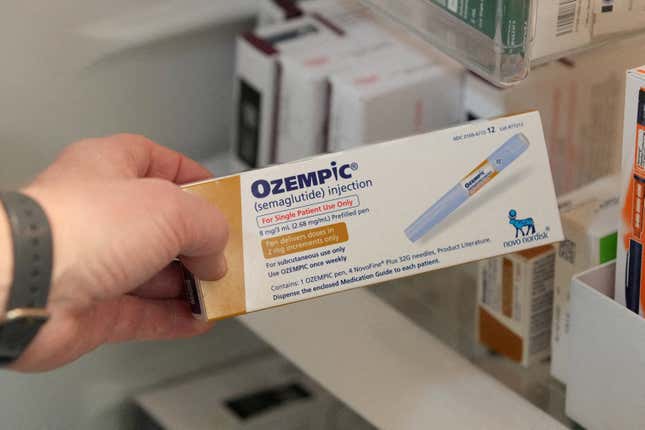
In This Story
The skyrocketing popularity of the diabetes drug Ozempic has put a heavy burden on public spending in Denmark, the home country of the drug’s producer Novo Nordisk.
In response, the Danish Medicines Agency announced on Wednesday that it has decided to cut some subsidies for the drug, most known for its weight loss side effects.
Starting this fall, the agency will only subsidize GLP-1s, the class of diabetes medications that Ozempic belongs to, for patients who can’t be treated with cheaper diabetes medications. The move is expected to shift half of cuurent GLP-1 users to cheaper alternatives, according to the agency.
In 2023, the Danish government spent about 8% of all its medicine costs —$200 million — on Ozempic, Bloomberg reported.
The Danish Medicines Agency decided not to cut all subsidies for the drug after Novo Nordisk slashed the price for Ozempic in the country to $125 from $188. The agency said this cut alone would save the government over $70 million annually.
U.S. Sen. Bernie Sanders took notice of the price cut.
“If Novo can substantially reduce the price of Ozempic in Denmark, it must do the same in the US,” Sanders wrote on a post on X, formerly known as Twitter.
Last week, U.S. Sen. Bernie Sanders sent a letter to Novo Nordisk CEO Lars Fruergaard Jørgensen announcing that the Senate Committee on Health, Education, Labor, and Pensions, which Sanders chairs, has launched an investigation into the high prices the company charges for its blockbuster diabetes and weight loss dugs.
Sanders criticized the higher list price these medication have in the U.S. compared to other countries. The price of Ozempic in the U.S. is $969, while it’s only $155 in Canada and $59 in Germany, for example. The list price of Wegovy in the U.S. is $1,349, while in Germany it’s $140.
“As important as these drugs are, they will not do any good for the millions of patients who cannot afford them,” Sanders wrote in a letter to Novo Nordisk CEO Lars Fruergaard Jørgensen.